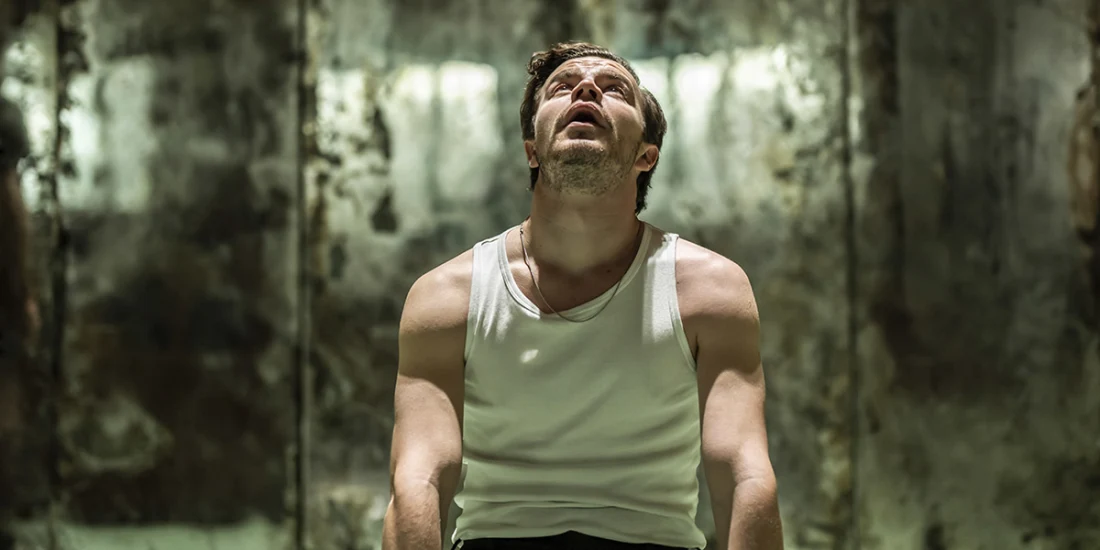'Henry V' review — a chilling anatomy of one man’s slide into savagery
The Sam Wanamaker Playhouse has quietly become the go-to London address for Shakespearean provocation. I’m thinking especially of their splendid production of The Merchant of Venice, which responded to the fluctuations of mood in that text by chopping it mercilessly so as to expose a corresponding mercilessness in the material. In that case, one felt nascent undercurrents to the play’s nastiness laid bare.
The director Holly Race Roughan’s new Henry V takes this approach yet further, cutting and filleting her source so that this most heroic of history plays acquires a savage hue. Watching Oliver Johnstone’s sneering Henry annex France as an act of envenomed caprice, one could be witnessing a blueprint for Vladimir Putin’s actions of late: you invade because you can, and let the carnage fall where it will.
We begin not with the famous appeal of the Chorus to our imagination but with the ending of Henry IV Part 2 and that king’s death, his crown less passed on than grabbed at by a notably impetuous heir to the throne. That’s followed shortly within the actual play of Henry V by this fledgling ruler’s reference to awaking “our sleeping sword of war” – this from a newbie monarch who claims to be “no tyrant but a Christian king”, yet delivers “once more unto the breach” as a self-directed memorandum to prepare for combat.
I’ve long seen this play treated as a referendum on the making of a warrior-king but Roughan re-casts a potential study in jingoism as a chilling anatomy of one man’s slide into savagery. The deliberate coarseness is amplified by a newly sweary text containing expletives not found in Shakespeare.
The scene with the tennis balls received from the French Dauphin – cannon fodder, or “gun-stones”, of a deceptively innocent sort – sets Henry on a vengeful course which will brook no appeasement. By the time Henry in the third act is facing an appeal to his “soft mercy”, Johnstone has long since hardened into a mean-eyed psycho who is given to slapping himself to keep his twisted self on course.
The production unfolds in modern dress, a floor-length curtain at the rear of Moi Tran’s set rising to reveal a tarnished mirror against which Henry now and again slumps in abject introspection: you’ve rarely seen the St Crispin Day speech enacted as abjectly it is here.
Various scenes, and characters, are announced for our benefit, as are both the interval and the ending. The latter depends for visual impact on a Hetty Hoover.
The climactic wooing of the French princess (Joséphine Callies) – always a difficult proposition in any production – here plays up this reluctant bride’s potential as a “good soldier-breeder”. That’s hardly the most amorous of descriptions, as Katherine and her mother (the excellent Eleanor Henderson) are the first to clock.
Remarking that “my condition is not smooth”, this Henry seems to be proffering direct evidence of psychic damage from which anyone, not just a potential spouse, would swiftly recoil. No wonder the French queen is seen weeping in a version of the text that changes round the order of the encounters with Katherine to purposeful effect.
I admire the audacity of Roughan’s take, and the fierce commitment of an adroit cast who deftly navigate multiple roles, with Johnstone committed to the prevailing revisionism throughout. Helena Lymbery, an invaluable presence at this address, is especially memorable as the ailing Henry IV of the start and, soon after, Henry’s uncle, Exeter, who keeps his own keen eye on the French throne. The murder of Scroop (Dharmesh Patel) prompts genuine gasps at one’s recognition of Henry as a bare-knuckled killing machine.
If the show concluded with the punch it delivers elsewhere, you’d be sent reeling from the auditorium, as I absolutely was at the ending of the Wanamaker Merchant. But Roughan overplays her hand in a silly final scene intended to chime with the Brexit-era depredations of the here and now that instead feels like a conceit too far.
Much better, methinks, to let the audience take away with them the sour, curdled version of “God Save the King” that couldn’t contrast more markedly with the robust delivery of the same ritualistic mainstay heard near the start. There’s nothing joyous about England, or Englishness, in this Henry V beyond the ever-welcome willingness of its theatre artists to take risks.
Henry V is at the Sam Wanamaker Playhouse through 4 February. Book Henry V tickets on London Theatre.
Photo credit: Oliver Johnstone (Photo by Johan Persson)
Originally published on

